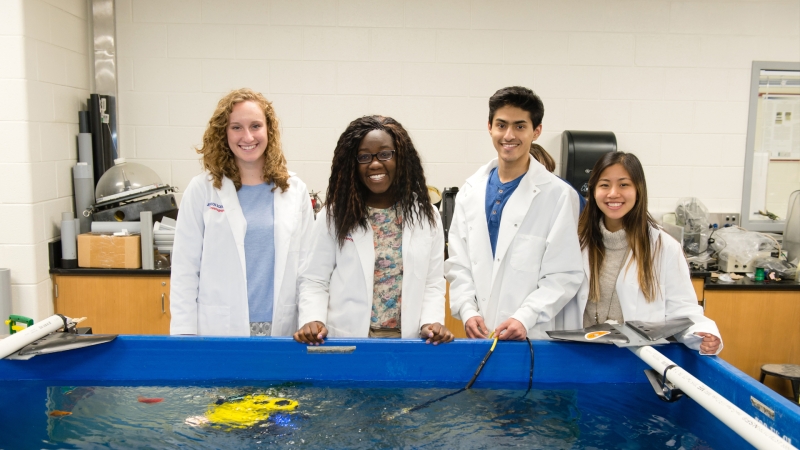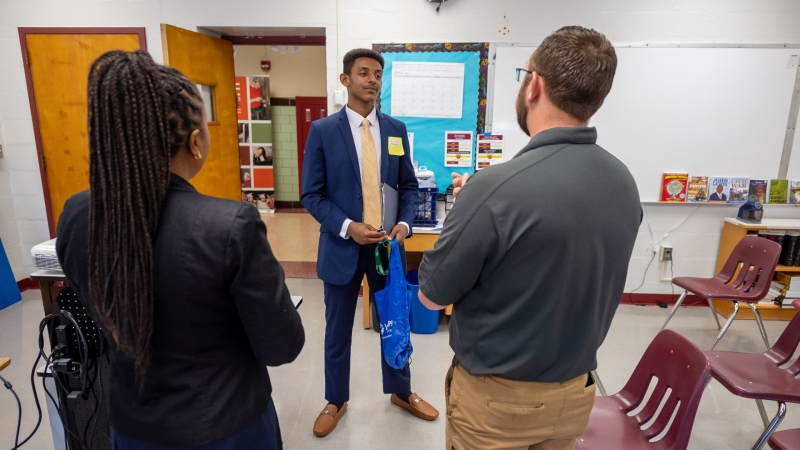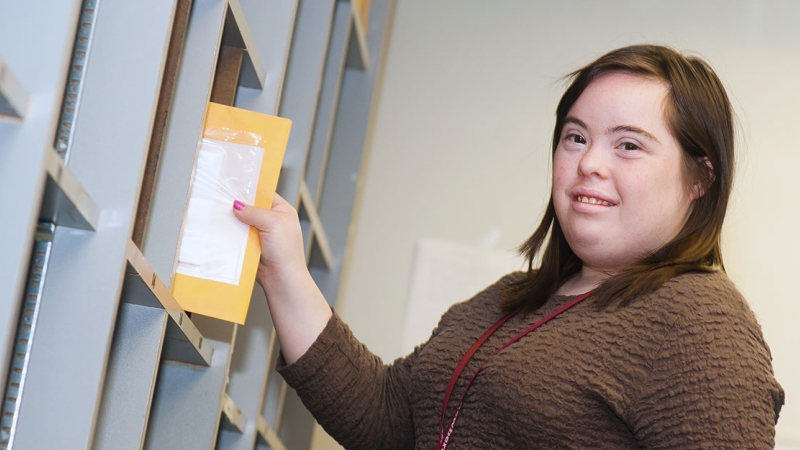
Career Preparation Activities (Work-Based Learning)
Learn about work through work. Career preparation engages students in authentic learning experiences. Students develop soft and hard skills that they can take to the workplace as an adult.
Preparation activities allow students to build a knowledge base. Experience and instruction occur in the classroom and community. As their confidence builds, so does their ability to plan a career pathway and goals.
Student Run Business
Some courses run school businesses out of their classrooms. For example, the cosmetology academy runs a salon. Other students, school staff and community members make appointments for services. Students practice customer service and hair design with supervision. Herndon High School’s Work Awareness and Transition class runs a coffee shop. Students learn valuable skills including:
- Teamwork
- Customer Service
- Responsibility
- Problem Solving
- Money Handling
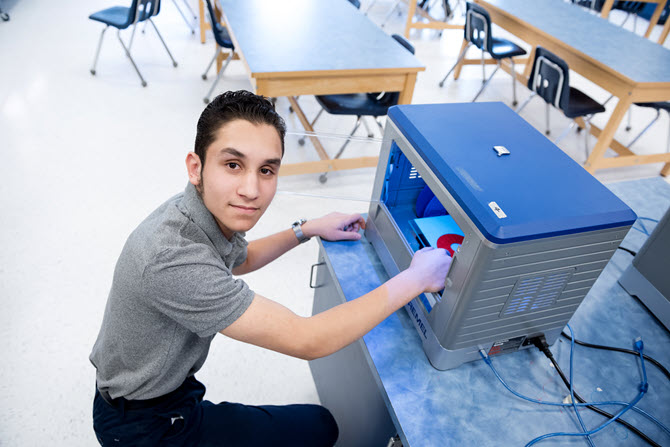
Volunteering or Community Service
Volunteer or Community Service opportunities are unpaid. They may not be part of a school course or program.Through these experiences, students connect with the community. They gain experience securing a position and working in a specific role or environment.
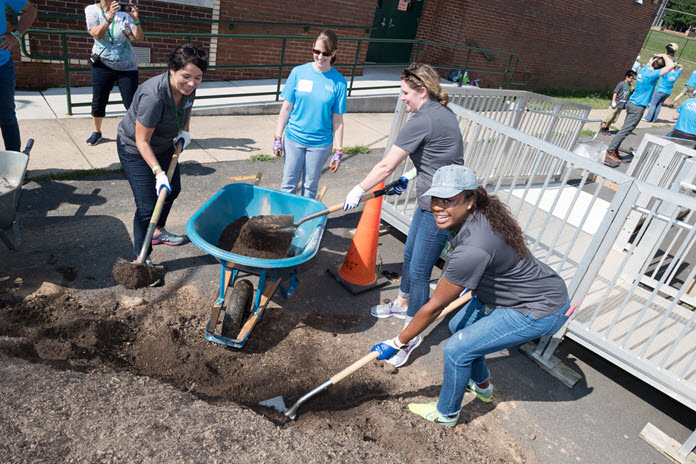
Career and Technical Education (CTE) Courses
Career and Technical Education Courses or academy courses are electives. Students learn industry-specific skills. The classes create career pathways to:
- Business
- Information Technology
- Family and Consumer Sciences
- Health and Medical Sciences
- Marketing
- Engineering
- Trades
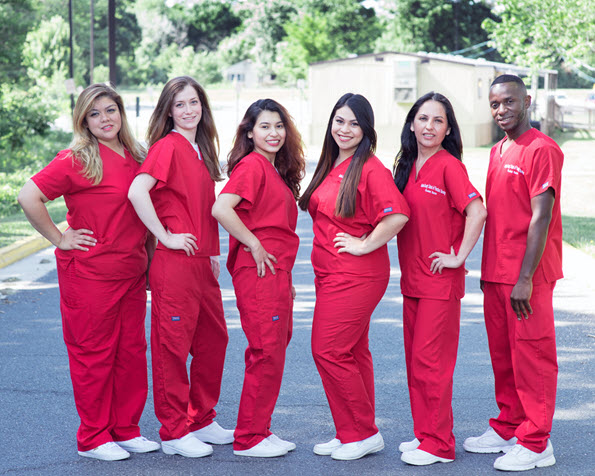
The academy support team are special education resource teachers. They help students with Individualized Education Plans. This includes:
- Organizational and study skills.
- Individual test administration.
- Review of instructional materials.
- Behavioral support plans.
- Self-advocacy.
Community Work Experience (CWE)
Career and Transition Services support students in unpaid or paid work experiences. Placements are coordinated through the following classes and programs:
- Education for Employment (EFE)
- Work Awareness and Transition (WAT)
- Education for Employment for the Office (EFEO)
- Career Preparation
- Davis and Pulley Career Centers
- Secondary Transition to Employment Program (STEP)
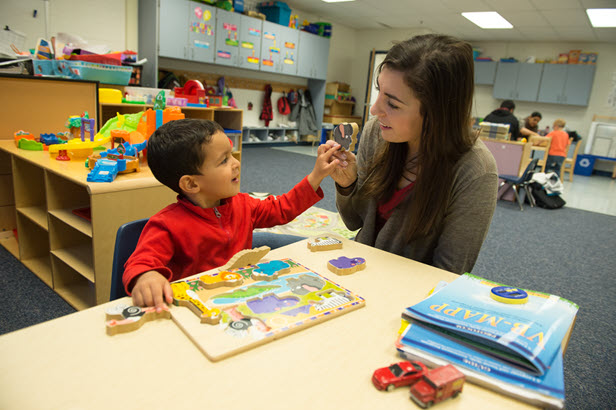
The possibilities are endless. Our training types include:
- Animal care
- Assembly
- Childcare
- Clerical work: filing, scanning, data entry, shredding, digitizing, and collating
- Computer dismantling
- Floral design
- Food preparation and service
- Grounds maintenance
- Housekeeping- laundry
- Mailroom
- Retail work: stock, inventory, bagging, and courtesy clerk
- Teaching
- Warehouse logistics
These experiences help students learn important skills for future employment success. Benefits include:
- A link between school and work.
- Career paths based on interests and talents.
- Learn soft skills to maintain employment.
- Build self-confidence and awareness.
- Learn self-advocacy in the workplace.
- Gain academic, social, and communication skills through work.
- Learn about the current job market.
- Meet professional role models.
We follow the Fair Labor Standards Act guidelines:
- Participants will be a youth with disabilities. Students will need intensive, ongoing support to perform in a work setting.
- Placements connect to classroom instruction and individualized education programs.
- The students are the primary beneficiary of all placements.
- Students do not displace employees or assume vacant positions.
- The business partner and school staff provide continued and direct supervision.
- School staff provide ongoing instruction and close supervision.
- Students are not entitled to wages for the time spent in the work experience.
- Students are not entitled to employment at the business at the end of their work experience.
Students work in groups and independently. Some students work with job coaches briefly to establish expectations and performance.
Career and Transition Services works with over 350 partners each year. We place approximately 1,200 students with disabilities in community work experiences each year. Some of our sites include:
- Burlington Coat Factory
- CVS Health
- Fairfax County Government
- Fairfax County Public Schools
- Giant Foods
- Greenspring Village
- Marriott Hotels
- Metropolitan Washington Airport Authority
- INOVA Health System
- Papa John’s Pizza
- Social Security Administration
- Sodexo
- United States Geological Survey
- Walmart
Youth Apprenticeships
Registered youth apprenticeships help young people gain technical skills and practical experience. Students learn in the classroom (usually in the evenings through Adult Continuing Education or ACE) and on the job. There are many opportunities in the trades, healthcare, and information technology.
Visit the Virginia Department of Labor website to learn more.
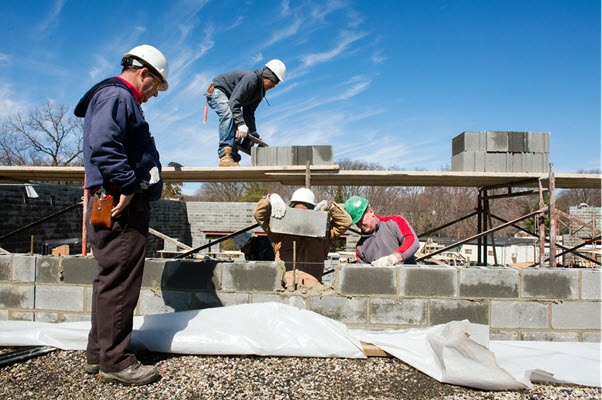
Competitive Employment
Students seek employment after school hours and during the summer months. Employment and Transition Representatives
- May help students seek and maintain positions.
- Provide support during the application and interviewing process.
- May check on the students' performance and employers’ satisfaction.
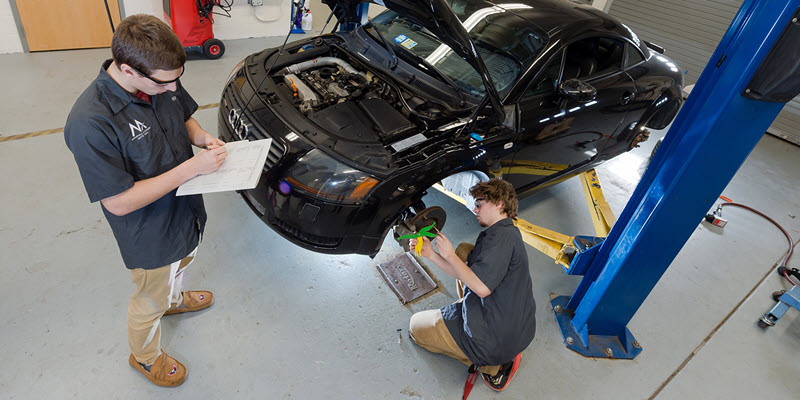
Job coaches may help get students started. Students begin to understand workplace expectations. They develop hard and soft skills. They can take these experiences and skills to their future careers.
Contact
To learn more about Career Preparation activities, contact Career and Transition Services at 571-423-4150 or follow us @FCPS_CTS on Twitter.

